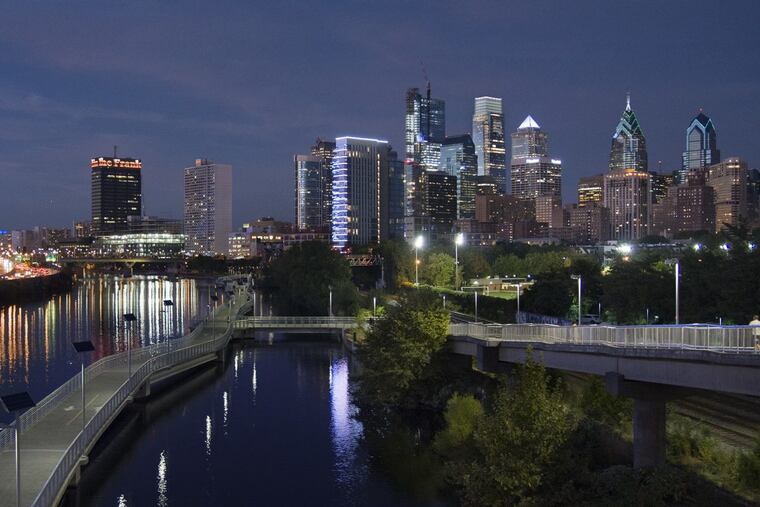How flash mob flashback hurts us all | Editorial
Center City is a space that belongs to the entire Philadelphia region. It is where a diverse array of people spanning the gamut from young to old, black to white, Muslim to Christian, gather and mostly behave themselves.

News that a mob of over 100 teenagers swarmed through Center City, injured a couple, and scuffled with police last weekend sent up a collective gasp of "Oh, no, not again!"
The bad behavior injured the public sense of civility that Philadelphia has worked so hard to nurture since a rough period between 2009 and 2011, during which teenagers rampaged through city neighborhoods. It struck a nerve because Center City belongs to the entire Philadelphia region. It is where a diverse array of people, young and old, black and white, Muslim and Christian, gather and mostly behave themselves.
They share Center City so well, they inspired one of the nation's leading sociologists, Elijah Anderson, to write The Cosmopolitan Canopy, Race and Civility in Everyday Life. Anderson explained in a recent meeting with the Inquirer and Daily News Editorial Boards that he studied Philadelphia's Rittenhouse Square to its Reading Terminal Market to point out the complexities of race relations and how these public settings can bring out the best characteristics of a civil society. But the kids probably didn't read Anderson.
The melee started after a crowd of teenagers left Club Coda, at 17th and Walnut Streets, following an anti-smoking event, according to First Deputy Managing Director Brian Abernathy. Others who had been at the even, spread their mayhem as far as 15th and Market Streets, where a 16-year-old girl allegedly kicked and punched a SEPTA officer who was helping city police break up the crowd. Police arrested the girl, of Juniata Park, and a 14-year-old West Philadelphia boy after police saw him punching a person in the crowd.
Police didn't know about the Club Coda event or when it was letting out. That's important, because police keep tabs on where large groups of teenagers gather and increase their presence to prevent trouble.
Similar intelligence-based police tactics are among the lessons from the flash mobs of a few years ago, which knocked the city on its heels. Back then, packs tore down sidewalks from Center City to Old City, knocking over, punching and kicking pedestrians. In reaction, City Council passed a temporary curfew. Former Mayor Michael Nutter famously took to the pulpit at Mount Carmel Baptist Church and admonished parents to get more involved in their children's lives.
Police stepped up their surveillance of social media, which troublemakers used to organize crowds. And, city police began an online registry of private security cameras so they could more quickly apprehend suspects. SEPTA, too, has cameras on its passengers and properties. Those systems worked well — until Saturday night.
Mayor Kenney promises increased police presences in the city for the foreseeable future. That's good. But underneath the street fights is a troubling question arising from the nature of children. They often react to something wrong in their worlds without fully understanding what they are doing. Pinpointing their underlying fears, anger and frustrations and addressing them can protect all of us and our sense of civility.
To make Saturday night's bad behavior an isolated event, the city should take it as a reminder that vigilance is essential to keep the peace.